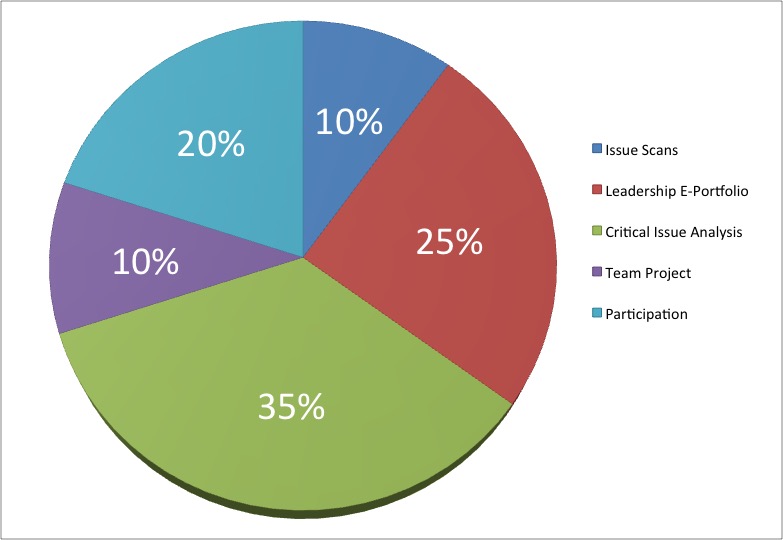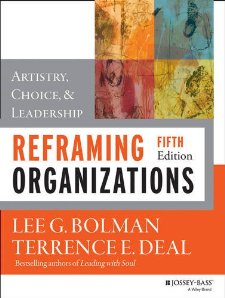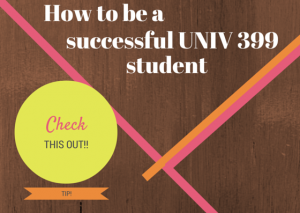CSU CHANNEL ISLANDS MISSION
Placing students at the center of the educational experience, California State University Channel Islands provides undergraduate and graduate education that facilitates learning within and across disciplines through integrative approaches, emphasizes experiential and service learning, and graduates students with multicultural and international perspectives.
COURSE DESCRIPTION
Examines organizational theory and leadership skills required to understand and implement change. Topics include organizational structures, the cultural context of education and ethical leadership.
Student Learning Outcomes
Upon completion of the course, students will be able to:
- Demonstrate an understanding of the multiple approaches to how organizations are studied and described
- Describe the ways in which organizational theory helps explain the influences, structures and behaviors within a school
- Integrate and apply a variety of human development, psychological and sociological theories to explain and guide behavior in an organizational setting
- Apply ethics standards in personal and professional roles in leadership
- Demonstrate an understanding of the role of leader in leading, managing, and shaping the culture of a school/educational environment
- Use reflection as a tool to analyze the relationship between theory and practiced concerning leadership practices in the context of contemporary California education issues
- Demonstrate the ability to utilize organizational change and development theories in improving management decisions, school effectiveness, work lives of professionals and learning outcomes for students
- Demonstrate university level competence in oral and written communication, and in the use of technology and information literacy
ASSIGNMENT OVERVIEW
Point Distribution Table
[ultimatetables 1 /]
Point Distribution Chart
| Grade Percentage | A+ | A | A- | B+ | B | B- | C+ | C | C- | D+ | D | D- | F |
| 97 -100 | 96.9 – 93 | 92.9 – 90 | 89.9 – 87 | 86.9 – 83 | 82.9 – 80 | 79.9-77 | 76.9 – 73 | 72.9 – 70 | 69.9 – 67 | 66.9 – 63 | 62.9 – 60 | <60 |
CLASS SCHEDULE OVERVIEW
[ultimatetables 2 /]
COURSE POLICIES/INFORMATION
Instructor Availability
I work on campus full-time and am therefore available on campus many hours per week. I will typically be located in Solano Hall 1201 so feel free to drop by if you have a quick question. However, to ensure I am available, sending me an email in advance is optimal. I LOVE meeting with students so don’t be shy. Also, I can meet via video chat or phone, just send me an email and we will set something up. If you have questions about the course that everyone can benefit from, please post them on the Got Questions? page on the course website so that everyone can benefit from the answers. If you contact me individually, my commitment is to respond to you in 24 hours or less on weekday (48 hours on the weekend). You can also find me on Facebook and Twitter.
Attendance
As a member of this classroom community, attendance is crucial. To create a positive and supportive place where members can develop their fullest potential, everyone needs to be here, every time. You are expected to attend class every day. You will need to attend class every day. You will, most likely, want to attend class every day. I guarantee you will be much more successful in the course if you are in class, on time, every day.
It is acknowledged that participants in this course are professionals with work and family commitments. Due to the intensity and highly interactive nature of the course, all students are expected to attend each class session. More than one missed class, arriving late or leaving early on more than two occasions may result in the reduction of grade. Illness and emergency circumstances will be reviewed on an individual basis. It is the student’s responsibility to contact the instructor prior to an extenuating circumstance. Please note: there are no make-up presentations, exams or quizzes. If you are absent when you are to give an oral presentation or assignment you will be given a zero for that exercise.
Participation
I will take your participation in class discussions (BOTH online and face-to-face) into consideration when setting final grades. I expect you to engage in face-to-face and online discussions regularly; I do not stipulate “how many” times you should speak in class to earn an ‘A’ and likewise will not do this for online discussion. My expectation is that you engage and continue discussions. This means that even if a module has “ended” but there are conversations that are in progress online (e.g. someone commented on your post), you should continue that conversation to get the most out of it.
Grade-wise, 20% of your grade will consist of participation (this includes participation in face-to-face classes AND online activities). As the saying goes, “you will get out of it, what you put into it.” You have not only a right, but also an obligation to the development of your mind, and to expect that your classmates share this responsibility with you. We can only create an environment conducive to higher learning if you are willing to take your role seriously. YOU as an individual and you as a class have the power to make this course useful and worth your time and energy.
Late Policy
Because of the concentrated nature of this course, all assignments must be submitted on their due date. The grade for assignments submitted one session after the due date will be reduced by one letter grade (or the point equivalent). Work submitted beyond one session late will receive reduced credit.
Technology
This course is digitally inflected; this means that technology will be used to augment the learning experience while enhancing students’ digital literacy. Students should be prepared to learn how to use digital tools, establish a presence on the web and be open to the technology-related learning experience. Students may find it useful to reference to following Online Readiness Self-Assessment created by CSU Stanislaus http://teachonline.csustan.edu/selfassessment.php.
Subsequently, students will need regular access to a computer, the internet and at times, a webcam. A variety of locations on campus offer free computer use to students but please let me know as soon as possible if you foresee any access-related issues so we can work together to identify solutions. Students will find it useful to bring laptop computers to class to work on class-related assignments.
Required Texts
Bolman, L. G., & Deal, T. E. (2013). Reframing organizations: Artistry, choice, and leadership. San Francisco, Calif: Jossey-Bass.
How to be a successful student
- Be sure all of the work you submit is the best you can do.
- Carefully review the course syllabus to avoid missing assignments.
- Budget your time wisely – just because coursework is due online does not mean it should be left until the last minute.
- Dress in business attire when delivering a presentation.
- Spell and grammar check emails sent to the instructor, spell her first name correctly and begin with a salutation.
- Arrive to class on time. However, better late than never.
- Set up the classroom chairs/desks in a square upon arrival.
- ALWAYS cite your sources in APA format. Cite the course text when you use course concepts. Visit the Purdue OWL for helpful hints.
- Submit all written papers using Times New Roman, 12 point font with 1” margins and in the format required (e.g. CI Learn, WordPress, etc.)
- Participate with enthusiasm. Be actively involved both verbally and nonverbally in the class discussions and learning activities.
- Challenge (appropriately) concepts covered in the text. Employ your critical thinking skills!
- Be prepared for class. However, come to class even if you are not prepared.
- Keep an open mind to new ideas and opinions and respect the values and privileges of all concerned.
Things to avoid
- Utilizing your laptop, phone OR tablet during class for reasons other than class-related business.
- Texting in class and most importantly, answering your phone in class (if you do this, you will be asked to leave for the day).
- Talking while another student is talking.
- Talking while the professor is talking.
- Asking for exceptions to stated class policies (i.e. while car troubles are unfortunate, they are NOT excuse for absences).
- Sharing information about class discussions with individuals outside of class.
Asking the following questions…
- Did I miss anything important last time? Everything we do is important.
- I’ll be absent next week. Will I miss anything important? Yes, you will. See attendance policy.
- Is it OK if I leave early? No, it is not OK.
- What is the assignment? Consult your syllabus first, classmates, and then ask questions.
SUPPORTING ALL LEARNERS
I am committed to providing a learning experience that is meaningful for all types of learners with varying strengths and challenges. Throughout this course, you will find activities specifically designed to engage visual, auditory and kinesthetic learners and you may indeed find some activities more engaging based on your strengths while others may be more challenging. I encourage you to see challenges as opportunities but also ask that you communicate with me as soon as possible if there is something I can do to make your learning experience more engaging and accessible.
CI’s Disability Accommodation Statement
Cal State Channel Islands is committed to equal educational opportunities for qualified students with disabilities in compliance with Section 504 of the Federal Rehabilitation Act of 1973 and the Americans with Disabilities Act (ADA) of 1990. The mission of Disability Accommodation Services is to assist students with disabilities to realize their academic and personal potential. Students with physical, learning, or other disabilities are encouraged to contact the Disability Accommodation Services office at (805) 437-8510 for personal assistance and accommodations.
UNIVERSITY POLICIES
Academic Dishonesty (SP01-57)
- Academic dishonesty includes such things as cheating, inventing false information or citations, plagiarism and helping someone else commit an act of academic dishonesty. It usually involves an attempt by a student to show possession of a level of knowledge or skill that he/she does not possess.
- Course instructors have the initial responsibility for detecting and dealing with academic dishonesty. Instructors who believe that an act of academic dishonesty has occurred are obligated to discuss the matter with the student(s) involved. Instructors should possess reasonable evidence of academic dishonesty. However, if circumstances prevent consultation with student(s), instructors may take whatever action (subject to student appeal) they deem appropriate.
- Instructors who are convinced by the evidence that a student is guilty of academic dishonesty shall assign an appropriate academic penalty. If the instructors believe that the academic dishonesty reflects on the student’s academic performance or the academic integrity in a course, the student’s grade should be adversely affected. Suggested guidelines for appropriate actions are: an oral reprimand in cases where there is reasonable doubt that the student knew his/her action constituted academic dishonesty; a failing grade on the particular paper, project or examination where the act of dishonesty was unpremeditated, or where there were significant mitigating circumstances; a failing grade in the course where the dishonesty was premeditated or planned. The instructors will file incident reports with the Vice Presidents for Academic Affairs and for Student Affairs or their designees. These reports shall include a description of the alleged incident of academic dishonesty, any relevant documentation, and any recommendations for action that he/she deems appropriate.
- The Vice President for Student Affairs shall maintain an Academic Dishonesty File of all cases of academic dishonesty with the appropriate documentation.
- Student may appeal any actions taken on charges of academic dishonesty to the “Academic Appeals Board.”
- The Academic Appeals Board shall consist of faculty and at least one student.
- Individuals may not participate as members of the Academic Appeals Board if they are participants in an appeal.
- The decision of the Academic Appeals Board will be forwarded to the President of CSU Channel Islands, whose decision is final.






Recent Comments